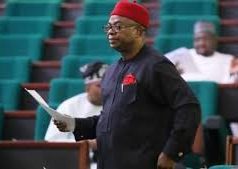In 2025, the future is not just coming—it’s being written in Yoruba, Swahili, Shona, and Wolof. African speculative fiction 2025 is experiencing an unprecedented renaissance, as authors across the continent reimagine technology, spirituality, and society through lenses rooted in African cosmologies, histories, and urban realities. No longer confined to niche literary circles, this genre is surging into mainstream consciousness—fueled by bestsellers, film adaptations, and a new generation of readers demanding stories where African protagonists shape tomorrow.
The shift is undeniable. At the just-concluded Ake Arts & Book Festival in Abeokuta, speculative fiction panels drew standing-room-only crowds, while Nairobi’s Storymoja Bookstore reported a 210% year-over-year increase in sales of African sci-fi and fantasy titles. Leading the charge is Nigerian author Oghenechovwe Donald Ekpeki, whose 2025 novella “The Dust Sings in Tongues”—a haunting blend of post-climate-collapse Lagos and ancestral AI—has been shortlisted for both the Nebula and the newly launched Ubuntu Speculative Prize, a pan-African award launched this year to spotlight homegrown futurism.
But Nigeria isn’t alone. In Kenya, Wanjikũ wa Ngũgĩ’s “The Children of Mumbi Rebooted” reimagines Kikuyu creation myths in a cyberpunk Nairobi where elders communicate through neural networks. Meanwhile, Zimbabwean writer T.L. Huchu’s “The Library of the Unwritten Dead”—part of his acclaimed Edinburgh-based fantasy series—has been adapted into a limited series by South Africa’s Showmax, which premiered in August.
What’s driving this boom? Three key 2025 trends:
- Digital Publishing & Audiobooks: Platforms like AfroFutures Press (based in Accra) and Jalada Africa’s Speculative Lab are fast-tracking debut authors with minimal gatekeeping. Audiobook versions narrated in local accents are especially popular among diaspora youth.
- Gaming & World-Building Crossovers: African speculative fiction is increasingly intersecting with gaming. Nairobi-based studio Kamoyo Interactive just released “Nyoka: Spirit Realm”, a narrative RPG inspired by Luhya folklore—its lore co-written by speculative author Mũkoma wa Ngũgĩ.
- Climate Anxiety Meets Cultural Resilience: Many 2025 releases grapple with ecological collapse—but through uniquely African frameworks. Think solar-powered griots, drought-resistant ancestral seeds as data storage, or Lagos floating cities governed by water deities.
Critics once dismissed African sci-fi as “derivative” or “too Western.” But 2025 proves otherwise. “We’re not copying Black Mirror,” says Kenyan author Nnedi Okorafor (who launched a mentorship incubator for young speculative writers this spring). “We’re building worlds where Ubuntu ethics meet quantum computing. That’s not imitation—that’s innovation.”
As global publishers scramble to acquire African speculative manuscripts—and Netflix eyes rights to breakout titles like “The Lagos Oracle Protocol”—one thing is clear: the future of imagination is being coded on African soil.
Follow us on Instagram.
https://www.instagram.com/businessnewsng?igsh=ZXpweTdjOGF1ZXdu

























